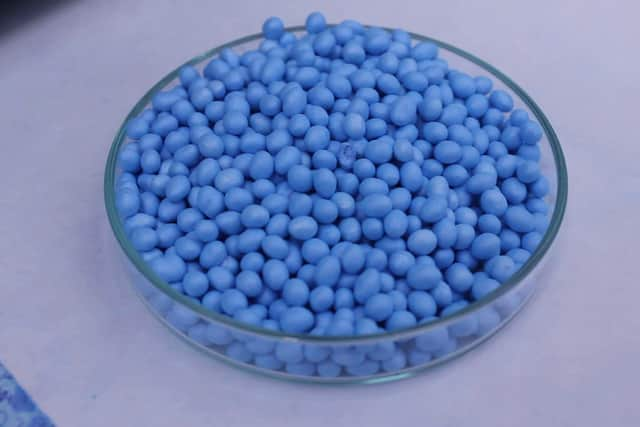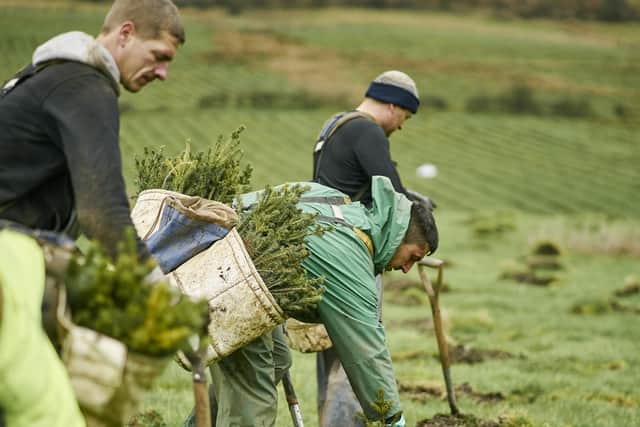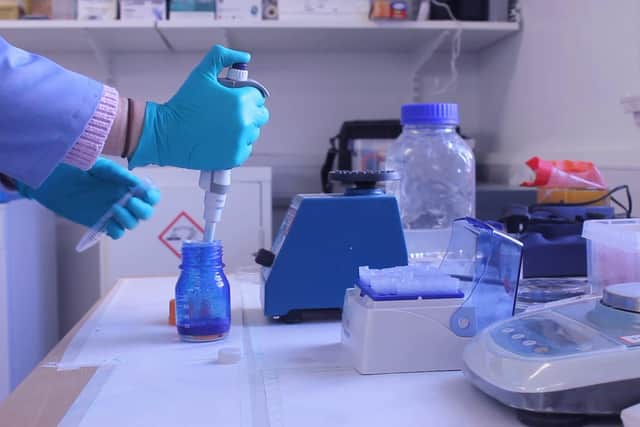Sustainable Scotland: Field trials of special hydrogel promise greener forests of the future
The project is testing the efficacy of an innovative hydrogel that acts like sponge, absorbing moisture in the soil and preventing it from draining away, thus boosting germination of tree seeds and raising their chances of survival.
The gel is the brainchild of the two women scientists behind Lothian-based start-up Silvibio, and results so far are promising.
Advertisement
Hide AdAdvertisement
Hide AdTesting is taking place at the firm’s laboratory in Roslin and at Forestry and Land Scotland’s Newton Nursery in Moray.
Early findings suggest the gel – which is made from organic components and completely biodegrades after six months, leaving no trace on the plant or in the earth – could play a big part in supporting moves to increase tree cover across Scotland, the UK and abroad.
Seed germination increased, with a 65 per cent success rate compared to 40 per cent without use of the hydrogel.
Calculations show that the quantity of water each seedling would need in their first year of life could be cut by around 50 litres.


This equates to a massive saving of more than 50 million litres of water annually – enough to fill 20 Olympic-sized swimming pools – for every one million seeds propagated.
“This technology has been developed in response to the global climate crisis,” said Alicja Dzieciol, chief executive and co-founder of Silvibio.
“While Scotland gets its fair share of rain, we are increasingly seeing warmer, drier weather due to climate change and when it does rain, the rainfall can be intense.
“Both factors can pose a significant risk to the survival of tree seeds.


Advertisement
Hide AdAdvertisement
Hide Ad“Hydrogel can help with this, conserving the water around the seed during spells of dry weather.
“The special coating also acts as a protective layer to help with seed germination and ultimately survival.
“If the trials continue to show successful results, we hope to introduce the hydrogel to the UK forestry market later this year.”


Alan Duncan, head of plant and seed supply at Forestry and Land Scotland, added: “We are always looking for new methods for growing trees to replenish current forests and to grow our forests of the future.
“The trials of the Silvibio hydrogel are showing better seed germination and greatly enhanced water retention.
“Tree-planting is one of the best ways we have of tackling the climate crisis so this technology could play a vital role in the forests of the future that will be needed for carbon capture and sustainable timber production.”
Demand for seedling trees for new forestry has been increasing exponentially in recent years, driven largely by moves to tackle the climate crisis and provide sustainable timber.
The Scottish Government recently raised the national target for creation of new woodland, increasing coverage from 12,000 hectares annually to 18,000 hectares by 2024/5 – around 36 million individual trees in total.
Advertisement
Hide AdAdvertisement
Hide AdThis is part of the UK government’s nationwide goal for 30,000 hectares to be planted each year by 2024.
Scotland continues to lead the way in tree-planting across the UK – despite challenges caused by a series of big storms resulting in failure to achieve its latest annual target for 13,500 hectares, more than three quarters of new forests created in the past year are in Scotland.
The UK forestry industry is currently worth around £200 million to the economy.
Comments
Want to join the conversation? Please or to comment on this article.
